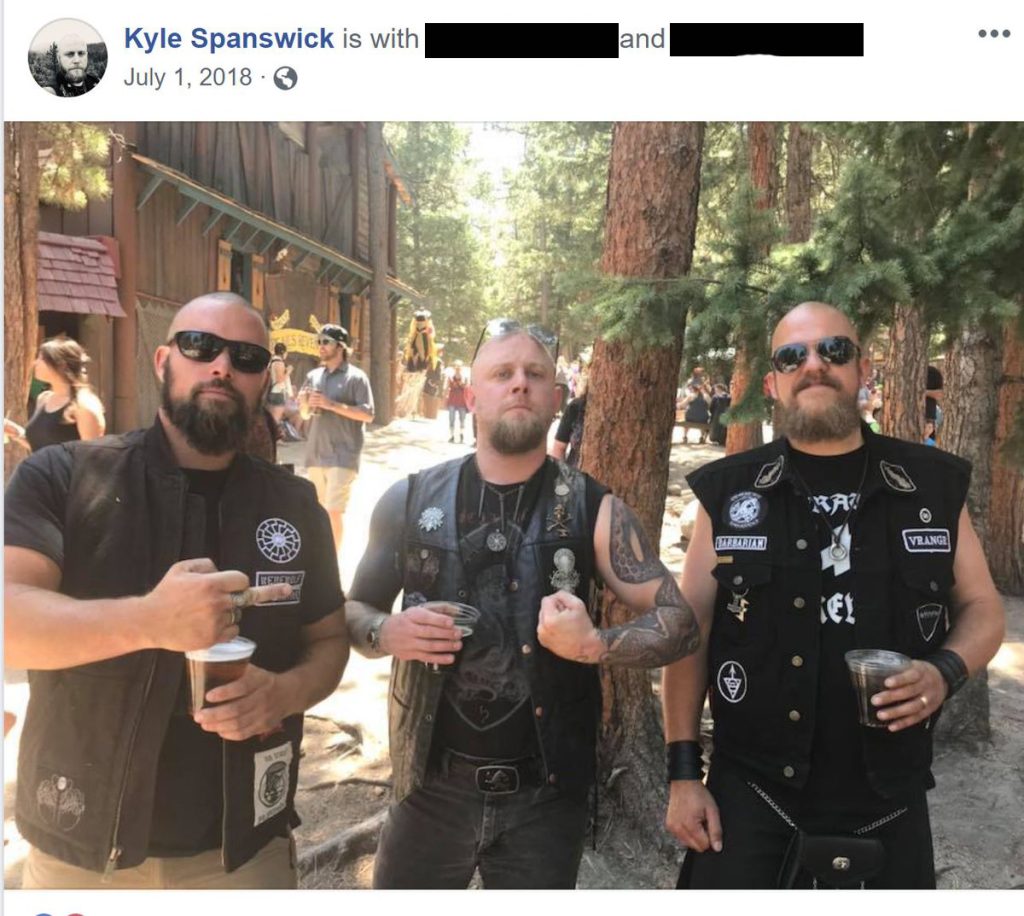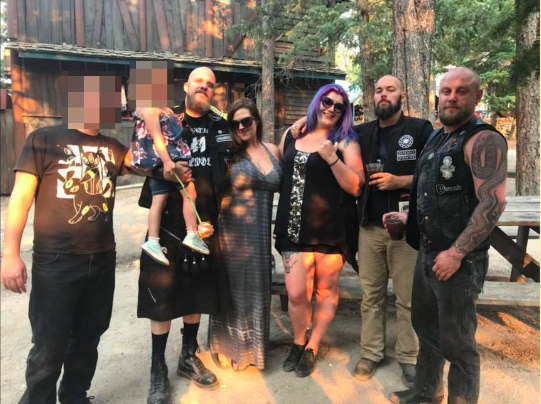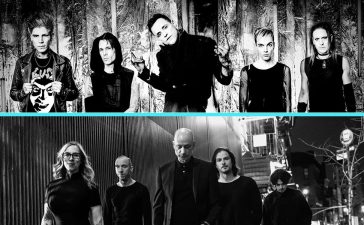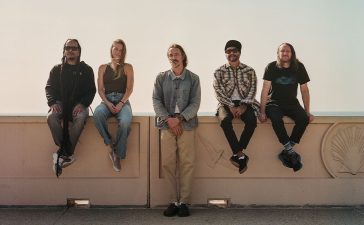Southern Extremities Productions, the business of Tasmanian-based promoter Matthew Chalk, booked fascist black metal bands Taake and Akhlys to tour Australia in February 2023. On 6 January 2023, Chalk announced the tour was cancelled, immediately following a request for comment from The Guardian.
University of Sydney staff and students had previously criticised the gig taking place at Manning Bar, forcing a venue change, and antifascists in other states contacted venues to express their concerns. Both bands have expressed racist and/or fascist sentiment through their music, performances, interviews, and collaborations with National Socialist Black Metal (NSBM) bands, as well as the extensive personal comments by both bands’ respective frontmen.
Following the cancellation of Destroyer 666’s tour in 2019 after Australian Brenton Tarrant massacred Muslims in Christchurch, we must ask again, why are fascist, Nazi and racist bands still being booked to tour in Australia in 2023? These bands are well known for violent anti-Semitic and Islamophobic sentiment as well as close associations with fascist and neo-Nazi individuals and groups. We’re publishing this article in order to compile our own and others’ research in one place to refer to as a guide in future if either of these bands tours your city.
Taake was forced to cancel their entire North American tour in 2018 after an online campaign to deplatform them based on past incidents, including Hoest (Taake’s founder) performing on stage in Germany with a swastika painted on his chest in 2007. The display of Nazi imagery in Germany is illegal. Many black metal bands and fans like to engage in “plausible deniability” and obfuscation regarding their beliefs and politics. In this article, we will make explicit the fascist beliefs, connections and politics of Taake and Akhlys.
Taake
Many of Taake’s controversies are old hat for those familiar with black metal – most prominent being Hoest’s aforementioned performance in 2007. His defence of this action is immediately implausible:
“Taake is not a political Nazi band […] everyone should know by now that our whole concept is built upon provocation and anything evil […] we truly apologise to all of our collaborators who might get problems because of the Essen swastika scandal (except for the untermensch owner of that club; you can go suck a Muslim!)” [emphasis added]
Beyond this most infamous action, Taake have also received criticism for their song “Okran” [Hurricane] from 2011’s Noregs Vaapen [Norway’s Weapon] featuring the lyrics “Til Helvete med Muhammed og Muhammedanerne/Utilgivelige skikker” [To hell with Muhammed and the Muhammedeans/Unforgivable Customs]. The connection between this song and Norwegian nationalism is not accidental; Hoest stated in a 2009 interview that he “[wants] to awaken national pride and cultural nostalgia in my Norwegian listeners.”
This is not the only anti-Muslim action that Hoest has engaged in. In 2013, Hoest wore a shirt with anti-Islamic iconography, a crossed-out crescent and star. Hoest’s personal security, Ottar Strangeland (himself photographed performing a Sieg Heil), has confirmed that “[Hoest] isn’t a big fan of Muslims.” Perhaps most explicitly connected to the band itself, an official Taake shirt was released with ‘ANTI ISLAM’ printed across the back. As recently as 2019, Hoest lamented in an interview that not enough people “had the balls to criticise Islam”, describing following the religion as a “mental disorder”.
Quibbling over neo-Nazi affiliations for Taake and Hoest is beside the point; this Islamophobia has consequences, from the 2011 terrorist attacks in Norway by Anders Breivik (supposedly defending the “white race” against “Muslims and Cultural Marxists”) to the 2019 Christchurch Mosque Shooting, committed by Australian neo-Nazi Brenton Tarrant. Hoest’s Islamophobia contributes to the broader social and political climate that gives rise to extremists like Breivik and Tarrant.
Notably, Hoest has not disavowed these actions and views, and typically does not try to. A recurring theme is seen in Hoest’s attempted justifications for his own actions – black metal is a genre founded on evil and provocation – and, therefore, he implies, the presentation of Nazi symbolism and Islamophobia is permissible within the genre. This is, of course, garbage; evil and provocation aside, the presentation of Nazi symbolism and rhetoric has real-world consequences, as does the deeply and consistently Islamophobic statements made by Hoest. Core to this idea is a process of normalisation; presenting far-right symbols and rhetoric contributes to the normalisation of fascist ideologies and gives cover to other, more extreme, NSBM bands. You only need to look at the host of articles openly discussing the Nazi problem that metal, and specifically black metal, has. Arguing over whether or not Taake are ‘really an NSBM band’ is immaterial; Hoest’s actions contribute to an environment where even more extreme acts are safe to proselytise and recruit.
A second defence is that these actions are intended as satire, or jokes, and so forth. The ways in which problematic views are dismissed as ‘joking’ or otherwise non-serious has been discussed at length by academics writing on black metal, but this defence also fails to hold water in Taake’s case. Firstly, wanting to protest the censorship of Nazi symbols in Germany is not quite the exonerating action that Taake fans seem to think it is (and clearly this does not cut both ways given how often calls to silence ‘Antifa’ crop up when Taake face the slightest backlash). Secondly, satire that draws on fascist symbolism is quite liable to be unironically enjoyed by fascists – consider how the movies Starship Troopers and American History X, both of which are deeply critical of fascist ideologies, are nevertheless lauded by the far-right. This is not necessarily the fault of the movies themselves, but the supposed ‘joke’ or ‘satire’ of painting a swastika on your chest becomes much less amusing when people who take these actions completely seriously suddenly materialise.
Akhlys
Perhaps less widely known was US band Akhlys, who, on its own, does not have any overt far-right views in its lyrics or paratexts. The issue comes with Naas Alcameth [Kyle Spanswick], the main and founding member of Akhlys (vocals, guitars, bass, keyboards), and apparently the sole songwriter. He also performs (or has performed) in a host of other bands in which he holds a similar role, the most significant of which for this article’s purposes are Nightbringer and Rhune.
Spanswick’s personal views have long been an open secret in the local metal scene; online fora openly describe his far-right ties and views. Beyond rumours, there is hard evidence, with screenshots showing Spanswick posing in 2018 with members of Operation Werewolf (a far-right fitness grift and Odinist group, with an armed presence in Australia) wearing Sonnenrad patches and Operation Werewolf-branded clothing. He has since made these photographs private.
Spanswick’s connection to Operation Werewolf is concerning: Operation Werewolf (and their splinter group Wolves of Vinland) are linked to real-world accelerationist and fascist violence including murder. Lyndon McLeod, the Denver, Colorado mass shooter, has been described as heavily influenced by Wolves of Vinland’s Jack Donovan and Operation Werewolf’s Paul Waggener, appearing on Donovan’s podcast and including Waggener in his novel Sanction II, after foreshadowing his murders and naming two of his victims in his first novel. He also amplified Waggener’s social media content and appeared to follow Operation Werewolf’s programs for prospective members.
Spanswick’s association with such groups is not benign.
Most clearly, Spanswick can be seen wearing a Black Sun/Sonnenrad pendant in this photograph. The Sonnenrad is an occult symbol commonly used by neo-Nazis today in place of the swastika, especially by neo-Nazis with an occult proclivity. As Goodricke-Clarke notes, the Sonnenrad become a symbol of the Nazi occult when it was carved into the floor of the Wewelsberg castle by Henrich Himmler as he made it the headquarters and occult teaching space for the Schutzstaffel (SS) (Goodricke-Clarke, 2002: 148-50). Remember the name of that castle, we’ll come back to it in a minute.
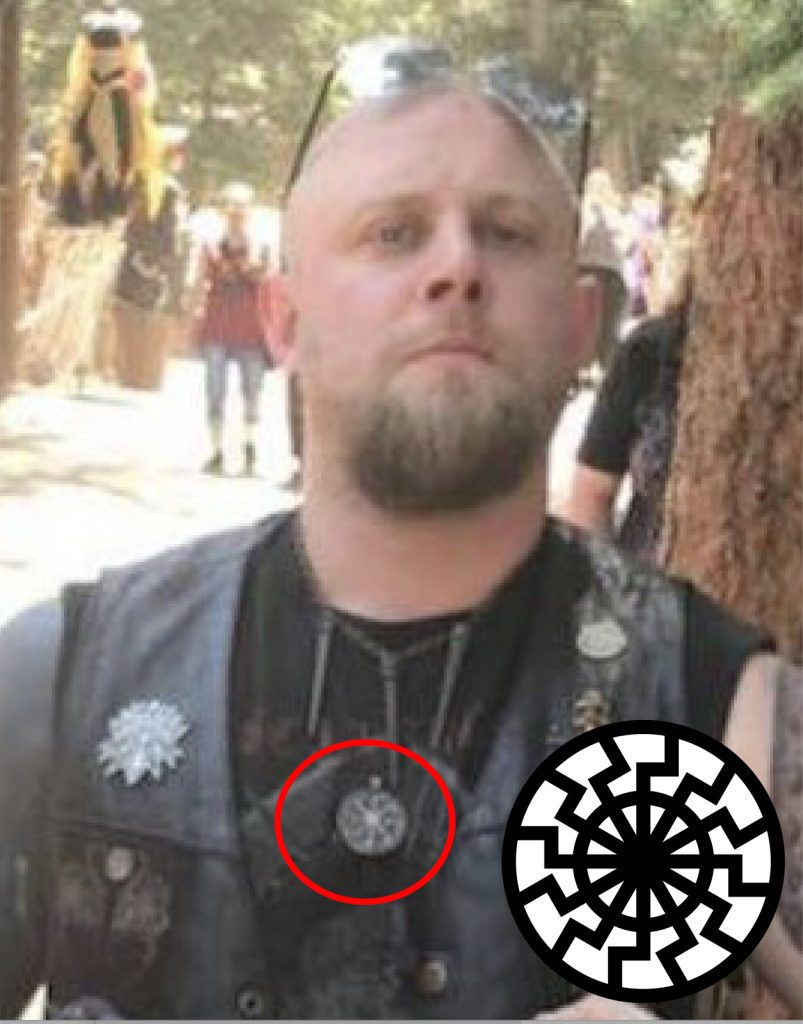
Spanswick’s far-right sympathies bleed into his black metal work as well. Most infamous is his band Rhune’s 2005 split with NSBM band Bellum Vinland Rising. Beyond appearing on a split with an explicitly NSBM band, Rhune’s logo prominently features the odal/othala rune in their logo, which while it has a non-Nazi connotation, is used by neo-Nazis to connote the importance of heritage. Along this theme, Rhune have a song titled ‘Blood and Soil’, referencing the prominent Nazi Germany slogan ‘Blut und Boden’ [Blood and Soil], which represents the Nazi drive for a people and a land that were racially ‘pure’. While some have noted that the lyrics for this song are not presently available on the internet, it is unclear what other meaning this title could have given how clearly and famously this phrase is used by both the Nazi Party and contemporary neo-Nazi movements.
Again, lest this be dismissed as ‘all in the past’, another band of Spanswick’s bands, Nightbringer, courted controversy in 2017 with the release of the album Terra Damnata. Of particular note is the song ‘The Lamp of Inverse Light’, which features a spoken word sample from philosopher, occultist, and ideologue of the Italian Fascist party Julius Evola. Evola has had a resurgence among the far-right since 2016, when the campaign manager for Donald Trump’s presidential bid, Steve Bannon, listed Evola as his favourite philosopher. Indeed, the editor of a Decibel interview with Spanswick noted that Evola hais been described as “one of the most fascist racists in Italian history.”
Given that Spanswick has already demonstrated a personal and artistic connection to far-right ideologies, it’s unsurprising that people saw this as further confirmation of his far-right sympathies. He thus appeared on the Iblis Manifestations podcast to attempt to clear the air. Spanswick attempts to characterise Evola as an occultist only involved in politics “in his early years”. What he fails to note is that Evola’s ‘involvement’ in politics was as the chief ideologue of Fascist Italy, especially in terms of racial laws, racial philosophy, developing an ideology termed ‘Spiritual Racism’ (Payne, 1996). So committed to fascism was Evola, that upon his arrest at the end of WWII, he rejected the label ‘fascist’, instead calling himself a ‘superfascist’. Spanswick presents people’s understanding of Evola as a fascist philosopher as “a more recent thing,” ignoring that Evola’s writings have been interpreted over the last 70 years as part of occult neo-Nazism and the belief system most commonly known as ‘Esoteric Hitlerism’ (Goodricke-Clarke, 2002).
Weak defence of a quote aside, Spanswick has buried the lede on his inclusion of an Evola quote in this song, revealing in a 2017 interview that the chanting in ‘Lamp of Inverse Light’ was recorded in Wewelsburg castle. To remind you of what we mentioned above, this is the same castle owned by Himmler and used as the ‘occult college’ of the SS. Indeed, Nightbringer band member ar-Ra’ad al-Iblis describes recording the song in this space:
“Above the centre is an air pipe shaped like a swastika, which somehow made me think of it as if I was standing at the very centre of the universe, spreading the divine word across every corner of it.”
This is the context in which a spoken word quote from Julius Evola, a famously racist occultist, was recorded, inlaid with layers of associations with Nazism, fascism, and their occult fixations. Taken together, it beggars belief that Spanswick just happened to choose this location and this quote to pair together on his song. Given his wearing of the black sun pendant and his work in Rhune, the use of Evola and recording in Wewelsburg is another notable allusion to his far-right sympathies.
While there are other odd aspects of Spanswick’s affiliations, such as the odd way in which he distances himself from the Jewish mystic tradition of the Qabalah in interviews, or the fact that the current live guitarist for Nightbringer performs in the NSBM band Blutschrei/Finnentum (the same band under different names), a pedantic reader may be screaming at the screen that we have not yet mentioned Akhlys directly. This is, however, missing the point; Kyle Spanswick is Akhyls. He plays every instrument, except drums on the recordings, writes all of the music, and collects session musicians to play live and augment what is demonstrably his creative work. A tour featuring Akhlys brings with it a platform for Spanswick, and the issues outlined above.
This brings us to the wider problem of platforming bands like Taake and Akhlys. International tours carry prestige, and the promotion of these bands brings with it greater exposure (and credibility) to what the people behind them think about the world. Sociologists and ethnomusicologists (people who study the links between music and culture) use the concept of ‘subcultural capital’ here (see Kahn-Harris 2007 for a discussion of how this works in metal). Subcultural capital refers to the ‘currency’ one has in a scene or culture – how much ‘cred’ you’ve got and your standing in the scene. This can be leveraged for a range of things, but usually it’s leveraged for respect and an audience. Practices and actions that confer subcultural capital – from upvotes on Reddit to international tours for sketchy black metal bands – need to be interrogated because they have this potential to grant an audience to individuals or bands. Compare the platform that Taake has to whatever local NSBM band you vaguely know performing in the middle of nowhere – often local, underground bands are too overt and too extreme to have much subcultural capital (except among their neo-Nazi mates), but bands who ride just close enough to the line can turn controversy into infamy, and suddenly people are lining up to ask you what you think about painting swastikas on yourself and about Islam.
This is the rationale for deplatforming – don’t give it oxygen. Don’t give Taake and Akhlys more prominence, more subcultural capital. Don’t give them a chance to convert that into a following, into room to spread their ideology. Because spreading this ideology is dangerous, and it shouldn’t take another racist flying to New Zealand to shoot up a mosque before the relationship between normalising hate speech and its symbols and the commission of hate crimes is paid attention to. A band should not need to be obviously and admittedly NSBM in order to receive criticism and pushback for supporting them by booking them on a tour. The Australian metal scene is increasingly taking awareness of how metal bands can normalise hatred (see the cancellation of Deströyer 666’s tour in 2019 and the discussion of far-right Australian bands in this paper), and the cancellation of the Taake/Akhlys tour is another step in demonstrating to these bands that Australian metal will not tolerate or promote fascist and other far-right and racist views.
TLDR: Actions have consequences. If you affiliate yourself with racist and fascist ideologies, don’t be surprised when people don’t want to have you play in their cities and at their venues. There is no place for these ideologies in the Australian metal scene.



